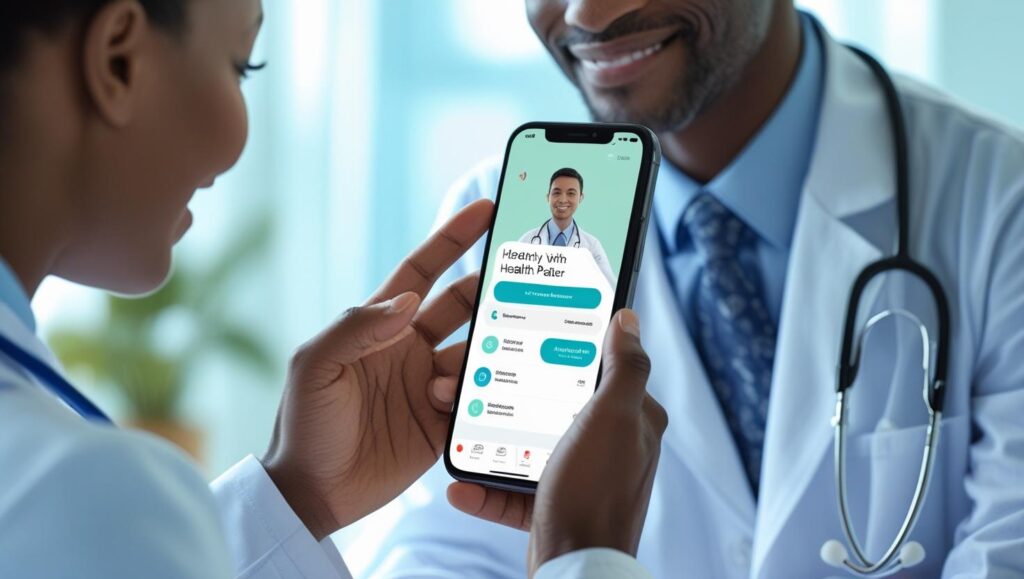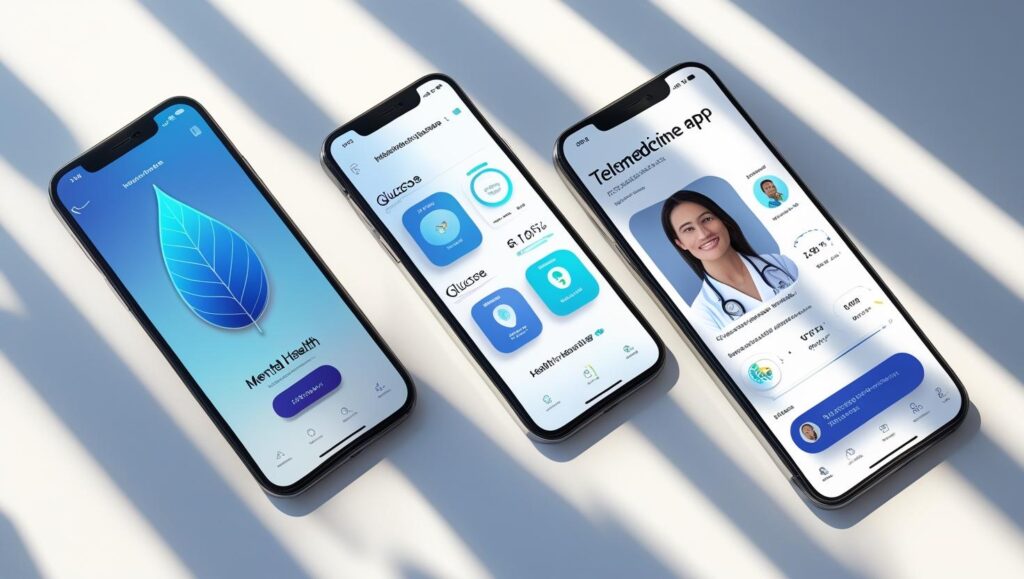For many business owners exploring healthcare app development, the journey often begins with a flood of unanswered questions. Without prior experience in this space, it is natural to feel overwhelmed by the complexity and technical depth involved.
Common concerns include development costs, essential features, and how emerging technologies like artificial intelligence can be applied effectively. UI/UX choices, legal compliance, data security, and patient engagement strategies also add to the decision-making pressure.
Many entrepreneurs want to understand how to gain a competitive advantage, what types of apps are in demand, and how long it realistically takes to build a compliant and scalable solution. Questions about interoperability, maintenance, post-launch support, and potential challenges are also top of mind.
This article addresses those concerns directly by answering the most frequently asked questions about healthcare app development in 2025. It serves as a comprehensive reference for business owners who are planning to enter the digital healthcare space and need clear, actionable insights to move forward with confidence.
Q1. Why Should Businesses Invest in Healthcare Apps in 2025?
Developing a healthcare app in 2025 is essential for staying competitive in the digital health ecosystem. Patients now expect accessible, secure, and personalized care experiences across mobile platforms.
Key benefits include:
- Enhanced patient outcomes through real-time monitoring and AI diagnostics
- Improved efficiency by automating workflows and reducing administrative burden
- Round-the-clock care via telemedicine apps and smart chatbots
- Stronger positioning through innovative features like wearable integration and predictive analytics

Q2. What are the Various Types of Healthcare Apps in 2025?
Healthcare applications in 2025 serve a variety of functions depending on patient needs and provider goals. Each type offers distinct features designed to improve clinical care and engagement.
App Type | Key Features | Use Cases |
Telemedicine App | Video consultations, appointment scheduling, EHR access | Follow-up care, chronic illness management |
AI Diagnostics | Symptom analysis, predictive alerts, imaging interpretation | Early detection of diseases and infections |
Mental Health | Mood tracking, therapeutic exercises, crisis response tools | Support for anxiety, depression, and trauma |
Wearable Integration | Real-time monitoring of vitals such as heart rate and glucose | Diabetes management, cardiac care |
Chronic Care | Personalized plans, medication tracking, virtual coaching | Hypertension, asthma, long-term condition care |
Women’s Health | Cycle tracking, prenatal support, virtual consultations | Fertility, pregnancy, and postnatal care |
Remote Patient Monitoring | Device syncing, real-time alerts, patient dashboards | Post-surgery care, elderly monitoring |
Selecting the right type of app depends on the clinical area, the user demographic, and the long-term care goals of your healthcare organization.
Q3. What are the Must-Have Features for a Successful Healthcare Mobile Apps?
Healthcare applications in 2025 must balance functionality with privacy, security, and user experience. Core features are now considered mandatory for effective delivery of mobile-based medical services.
This is the most important thing to consider while availing healthcare app development services. The usability of the healthcare app will increase depending upon the features you choose to integrate. Moreover, not all healthcare mobile app development companies will have the ability to add all the features.
Read some of the top features which you can consider to integrate with your healthcare app:
Core Features
- Personalized dashboards for patients and healthcare providers
- End-to-end encrypted video consultations and secure messaging
- Electronic health record interoperability using FHIR and HL7 standards
- AI-driven symptom checkers integrated with clinical guidelines
- Multi-factor authentication, including fingerprint and facial recognition
Advanced Features
- Predictive analytics for identifying patients at risk of readmission
- Voice-based navigation and digital assistants to improve accessibility
- Blockchain-based storage for secure and traceable data transfers
- Augmented and virtual reality tools for therapy and provider training
- Multilingual support for global accessibility and diverse populations
Modern healthcare applications are expected to deliver high performance while ensuring compliance with global health regulations and standards.
Q4. What Regulations do Healthcare Mobile Apps need to Comply With?
Health-related content is one of the most sensitive data on the internet. Below is a picture that shows how many people rely on this source. Any wrong information can be highly dangerous for consumers.
This is why different regions of the world have various legal or advisory guidelines. These rules should be followed while getting healthcare app development services:

Key Regulatory Requirements
-
HIPAA (USA)
HIPAA compliant mobile app development introduced stricter controls for telehealth app data encryption and patient authorization. All data transmission must use secure channels and include informed digital consent. -
GDPR (EU)
For users in the European Union, GDPR requires explicit consent for data processing and breach notifications within 48 hours. Data localization laws are also in effect for certain regions. -
21st Century Cures Act (USA)
This mandates the use of FHIR standards for interoperability between health systems and mobile applications. Apps must allow patients to access and share their records easily. -
App Store Policies
Apple’s HealthKit and Google’s Health Connect require annual third-party security audits. Apps collecting sensitive data must display compliance certifications in store listings.
Example
A chronic care app storing blood pressure and glucose data must undergo SOC 2 Type II audits and perform annual penetration testing to remain compliant with US regulations.
Complying with international laws ensures user trust and allows global distribution across markets with strict health data policies.
Q.5 What is the Cost of developing a Mobile Health app?
The cost of building a healthcare app in 2025 depends on its complexity, feature set, integration requirements, and compliance needs. Here is a general cost breakdown by project scope.
App Complexity | Estimated Cost Range (USD) | Includes |
Basic | $80,000 – $150,000 | Telemedicine features, secure messaging, basic EHR access |
Mid-Tier | $150,000 – $300,000 | AI tools, wearable integration, HIPAA and GDPR compliance |
Enterprise | $300,000 – $600,000+ | Blockchain, multi-language support, scalability infrastructure |
Additional and Recurring Costs
- Annual maintenance typically ranges between 15 to 20 percent of the original development budget
- Compliance updates such as security patches and audit reports may cost between $10,000 and $30,000 annually
- Cloud hosting and storage vary based on usage, region, and provider contracts
Understanding these cost drivers early in the planning stage helps align the app’s scope with long-term business and clinical goals.
Q6. What Are the Common Mistakes to Avoid in Mobile Health App Development?
Did you know 77% of daily active users stop using an app within three days of its launch? This is the harsh reality of the mobile apps’ market. There are several possible reasons behind such drastic fails of more than half of the apps.
Below are some reasons which might lead to failure of your healthcare app:

1. Lack of Appeal in UX/UI Design
Anything that glues a user to your app is immensely important to your healthcare mobile app development services.
The frontend design of the healthcare app has a major role to play here. Apart from this, the seamless scrolling and fast loading speed are also factors that improve the user experience of your app.
Know that anything less than impeccable does not work for the UX/UI design of an application. You will have to hire companies that have demonstrated a history of creating successful healthcare apps.
2. Wrong Hiring of Healthcare Mobile App Development Company
The healthcare development company that you choose plays an important role in your app’s success. You need a reliable, efficient, and experienced healthcare app development company.
To save yourself from making a wrong choice, read this blog to- Choose the Best Mobile App Developer for health. Hiring a company with work experience in healthcare app development is not enough. In fact, you need to hire mobile app developers who are passionate to work in this domain and possess extensive experience.
3. Inadequate Testing Procedures
Healthcare apps must go through comprehensive quality checks. This includes biometric authentication testing, penetration testing, and performance testing under real-time user loads exceeding 10,000 users.
4. Lack of Interoperability
Failure to integrate with major health systems can limit app usability. Use FHIR and HL7 standards to ensure compatibility with platforms like Epic, Cerner, and Meditech.
5. Weak Monetization Strategy
Monetization requires balancing affordability and sustainability. A hybrid approach such as combining freemium access with premium subscriptions or provider licensing often works best.
By addressing these risks early, developers can create applications that provide lasting value to both patients and healthcare institutions.
Q7. What Trends Will Shape Healthcare Apps Beyond 2025?
Emerging technologies continue to influence healthcare delivery, shaping the next generation of mobile medical solutions. The future of healthcare apps will focus on automation, immersion, and global reach.
1. Generative AI Integration
Artificial intelligence is being used to generate clinical notes, summarize patient conversations, and automate educational content. This reduces documentation time and increases provider productivity.
2. Digital Therapeutics Expansion
Regulatory bodies are approving software-based treatments for conditions such as chronic pain, insomnia, and substance dependence. These applications complement traditional medicine through clinically validated methods.
3. Metaverse-Driven Experiences
Virtual clinics are being developed for behavioral therapy, physical rehabilitation, and group counseling. These immersive spaces offer personalized care beyond physical boundaries.
4. Multilingual and Cross-Regional Growth
Apps are expanding into new markets by supporting 50 or more languages. This ensures inclusivity for diverse populations and extends services to underrepresented communities.
Businesses that incorporate these trends early will position themselves ahead in an increasingly global and tech-forward healthcare economy.
Final Recommendation
For business owners planning to build a healthcare app from scratch, it is important to begin with clarity and confidence. The process can appear overwhelming due to the many questions surrounding cost, technology, features, legal frameworks, and competition.
To simplify this complex journey, business leaders should work with a development partner who understands the healthcare landscape. A partner with proven expertise can help translate requirements into scalable solutions while maintaining compliance and user satisfaction.
Strategic planning, guided consultation, and continuous feedback are essential to creating a healthcare app that stands out and delivers real value. With the right support and clear objectives, any business can successfully launch a secure, compliant, and future-ready healthcare application.



